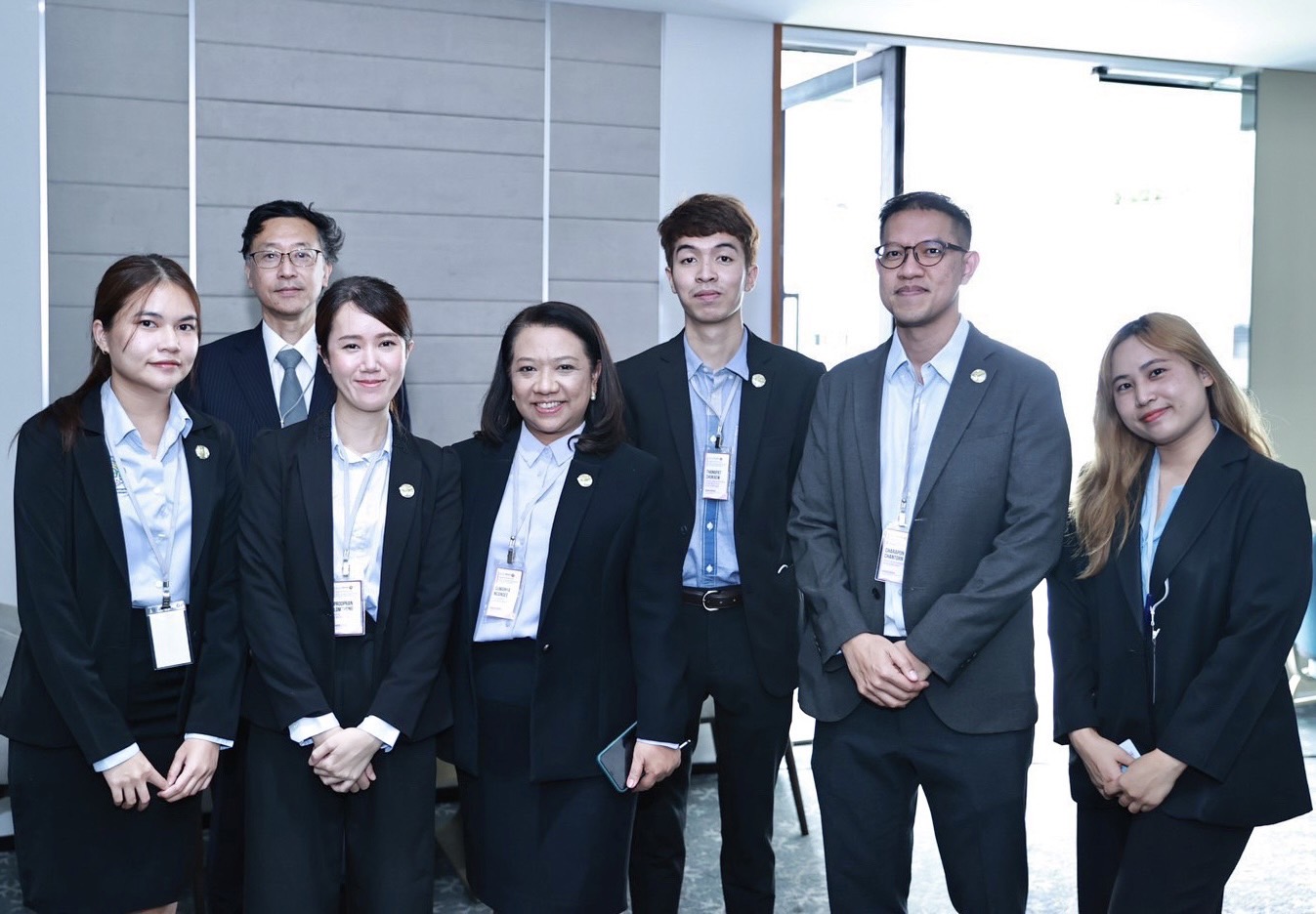.jpg)
On 29-30 August 2023, the AFSIS Secretariat held the Regional Workshop on the Strengthening ASEAN Food Security Information System (AFSIS) Function for Emergency (SAFER) at Novotel Sukhumvit 20 hotel, Bangkok, Thailand.
The workshop was honored by the following distinguished representatives which were Mr. Vinit Atisook, Deputy Secretary General of OAE from the MOAC of Thailand delivered the opening remarks and opened the event, Mr. Hosaka Masahiro, Deputy Director of the Statistics Planning Division, Statistics Department from MAFF, Japan delivered his remarks, Dr. Sumanya Ngandee, AFSIS Manager delivered the welcome remarks and participated in the discussion during the workshop.
24 participants from ASEAN Plus Three Countries which were Brunei Darussalam, Cambodia, Indonesia, Lao PDR, Malaysia, Myanmar, Philippines, Singapore, Thailand, Vietnam, and Japan attended the workshop physically. While participants from the People’s Republic of China, the Republic of Korea, and the observers from relevant organizations from Indonesia and Philippines attended virtually.
On the first day, the workshop was directed by Mr. Miyake Yasuhiro, a Japanese Expert of the SAFER project, with the main objective of discussing and selecting additional commodity that will be added to the AFSIS database, Agricultural Commodity Outlook (ACO), and Early Warning Information (EWI) reports, including the definition and methodology to collect the data.
On the second day, an international consultant, Mr. Kimura Shoji who is in charge of monitoring crop growing condition activity in SAFER project, lectured on how to monitor the growing conditions by satellite agrometeorological data (JASMAI) for the Rice Growing Outlook (RGO) report to all participants, especially 2 new ASEAN Member Countries (Brunei Darussalam and Malaysia) that will join in the AFSIS’ RGO activity. Tentatively, details in the RGO report on October 2023 will consist of the rice situation from 9 countries in ASEAN, except Singapore.
The workshop successfully ended with great collaboration from all participants and appreciation toward the AFSIS Secretariat for organizing the Regional Workshop to strengthen food security information in the ASEAN region.
.jpg)
.jpg)
.jpg)
.jpg)
.jpg)
.jpg)
 (1).jpg)
.jpg)
.jpg)
.jpg)
.jpg)
.jpg)
.jpg)
.jpg)
.jpg)
.jpg)
.jpg)
.jpg)
.jpg)
.jpg)
.jpg)
.jpg)
.jpg)

.jpg)
On 13–15 January 2026, the Office of Agricultural Economics (OAE), Thailand, in collaboration with the Ministry of Agriculture, Forestry and Fisheries (MAFF), Japan, and the AFSIS Secretariat, conducted the 1st Meeting of Japan–Thailand Expert Dialogue on Agricultural Statistics. The meeting was held at the Office of Agricultural Economics and field survey activities in Chonburi Province.

On 3–4 December 2025, the ASEAN Food Security Information System (AFSIS) Secretariat participated in the ASEAN Plus Three Emergency Rice Reserve (APTERR) Table Top Exercise (TTX) held in Bandar Seri Begawan, Brunei Darussalam.
/LINE_ALBUM_KRC_Cambodia_251204_13.jpg)
AFSIS and Development of Human Resources" in Cambodia On 27 November 2025, Mr. Charapon Chantorn, Deputy AFSIS Manager, participated in the Completion and Handover Ceremony of the project “Establishing the Real-Time ASEAN Food Security Information System (AFSIS) and Development of Human Resources, Phase 3 – Pilot Project on Strategic Crop Forecasting System for Food Security in Cambodia.” The ceremony was held in Phnom Penh, Cambodia, and jointly hosted by the Ministry of Agriculture, Food and Rural Affairs (MAFRA) of the Republic of Korea, the Ministry of Agriculture, Forestry and Fisheries (MAFF) of Cambodia, and the Korea Rural Community Corporation (KRC).

AFSIS Participated in APRSAF-31 to Strengthen Space Technology Cooperation for Regional Food Security On 18–19 November 2025, in Cebu City, the Republic of the Philippines, the ASEAN Food Security Information System (AFSIS) Secretariat, represented by Mr. Charapon Chantorn, Deputy AFSIS Manager, participated in the 31st Asia-Pacific Regional Space Agency Forum (APRSAF-31). The Forum, a key platform for promoting regional cooperation in space technology across the Asia-Pacific region, was co-organized by the Philippines Space Agency (PhilSA), the Ministry of Education, Culture, Sports, Science and Technology (MEXT) of Japan, and the Japan Aerospace Exploration Agency (JAXA).